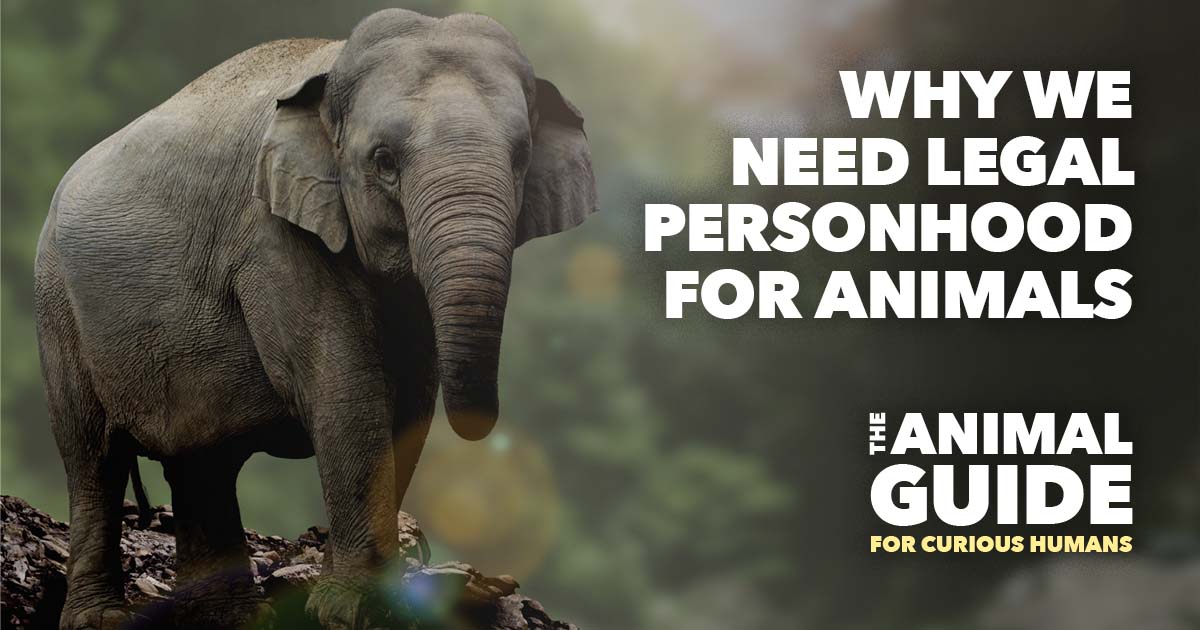Animals are not people. But what are they exactly? Are they just things? Are they property? Can they be persons even though they aren’t people?
On today’s episode, we share some background on an interesting and important legal case proceeding in the courts of New York state regarding the question of whether an elephant is, in legal terms, a person for the purpose of accessing certain legal rights. This case raises so many important issues with respect to the human/non-human animal relationship, the extraordinary intelligence of elephants in particular, animal ethics, and pathways we need to explore to protect animals in a modern, civilized society.
The elephant whose life and well-being are at the centre of the case is named Happy. She was born in 1971 in Thailand and was kidnapped as an infant from her herd. She along with six other elephant calves were purchased by a drive-through zoo in California. They were all named for the seven dwarves from Snow White and the Seven Dwarfs. Over the next few years, some died, some were sent to be circus performers and two, Happy and Grumpy went to the Bronx Zoo in 1977. Grumpy died in 2000. Since 2006, Happy has been confined to an enclosure by herself.
A lot has been learned about wildlife and elephants over the past 46 years since Happy first arrived at the Bronx Zoo. The Zoo and its parent organization, the Wildlife Conservation Society have advanced their thinking since that time. The Society is a sophisticated, knowledgeable organization that does very good work helping to protect several wildlife species around the world including elephants and educating the public about them. To its credit, the Zoo made a decision many years ago not to further acquire elephants. So, into the future, the situation Happy is in won’t be repeated; at least not at the Bronx Zoo. But what about her and the next several years of her life?
In October, 2018 the Nonhuman Rights Project, an American not-for-profit organization filed what is known as a writ of habeas corpus in New York State on Happy’s behalf. The organization is seeking to have Happy recognized as a legal person with a fundamental right to bodily liberty. They want her to be released to an elephant sanctuary where she would have expansive space to move around and the opportunity to socialize with other elephants. The zoo has opposed the legal action arguing that elephants are not legal persons who can exercise a right of habeas corpus. The case citation is Nonhuman Rights Project v James Breheny et al. Mr. Breheny is the Director of the Bronx Zoo and an executive with the Wildlife Conservation Society. It is expected to be heard by the New York Court of Appeal sometime this year.
The case raises important questions regarding how we understand and treat animals, particularly highly intelligent species like elephants. During the show we share some of the extraordinary skills and behaviours elephants exhibit and tell the story of how 20 African elephants sensed the death of Lawrence Anthony, a beloved conservationist they had encountered at a reserve in South Africa and how they travelled several miles to his home to pay their respects. How can all the needs of such complex creatures be met if they are confined to a small zoo enclosure alone like Happy is? Isn’t it time we recognize these extraordinary beings as having an inherent right to quality of life?
What do you think? Share your feedback on one of my social media channels with the hashtag #timeforanimalpersonhood and I’ll share some of your responses in the next episode.
Episode Links and resources:
- The Nonhuman Rights Program: Happy
- The Bronx Zoo
- Elephant Voices
- Elephants mourn death of Lawrence Anthony
- Lawrence Anthony, The Elephant Whisperer: My Life with the Herd in the African Wild
Show links:


0 Comments